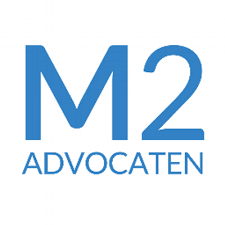On 1 January 2018, the Improvement of the Functioning of Owners’ Associations Act came into force. OA’s (in Dutch “VvE”) do not save enough for maintenance and can hardly borrow money for such maintenance. As the name of the Act indicates, the purpose of the Act is to improve the functioning of associations of owners and to increase the possibilities for the necessary maintenance. We have listed the most important consequences of this law for you.
A mandatory minimum reservation
As of 1 May 2008, it was already mandatory for VVEs to hold a reserve fund, but there was subsequently no minimum amount to be held in cash. At the time, the legislator was of the opinion that there were sufficient incentives for VVEs to maintain a sufficiently high reserve fund, but in practice this turned out to be different. According to research, it still appears that 51% of the VVEs have no or insufficient resources to carry out the necessary maintenance.
Therefore, as of 1 January 2018, a minimum annual reservation of at least 0.5% of the rebuilding value of the building will apply to VVEs. For the time being, this obligation only applies to apartment owners of a building intended for residential use, but also in the event that the building is only partially used for residential purposes, this obligation will apply.
Should the VVEs believe that this will lead to an excessive reservation, they are free to make reservations based on an MYMP (multi-year maintenance plan) in the future, whereby a lower annual reservation than 0.5% can also be chosen, provided that the maintenance plan meets the requirements that are set for it.
It is important to mention that the VVEs have up to three years after the entry into force of this Act at the latest to comply with the new legal requirements.
Enforcement
Incidentally, compliance with this statutory regulation will not be monitored by the government and therefore no enforcement will take place. The government is (once again) counting on the independence of the VVEs. Nevertheless, this standard does make it easier for individual owners to legally enforce the minimum reservation. For example, failing to make sufficient reservations may lead to improper management and directors’ and officers’ liability.
Incidentally, according to a ruling under the old law, an VVEs could also become obliged to increase the reserve fund in order to be able to meet the expected maintenance, but the new law makes it a lot easier to prove that an VVEs does not meet its obligations.
VVEs now authorised to get a loan
On the basis of the model regulations up to 2006, there was previously a great deal of uncertainty as to whether VVEs could get loans for maintenance. Even among lawyers, there were different views on this matter. The main reason for this was that banks were reluctant to grant loans to the VVEs for fear of nullity or annulment of the loan. The new law puts an end to this lack of clarity and stipulates that the VVEs may take out loans for management purposes. Moreover, it can still be stated in the demerger regulations that the relevant entity is not competent to do so.
No joint and several liability for loans
As just mentioned, under the old circumstances, banks were reluctant to lend to VVEs. When they did, they usually did so on a joint and several liability basis. In other words, each member of the VVE could be held individually liable by the bank for the entire loan. It will now need little explanation that in practice only few VVEs members were prepared to do so, so loans were rarely granted. The new law solves this problem by treating the loan from the VvEs as a severable debt. This means that an individual member can only be held liable for his or her share in the community. Incidentally, this severable debt cannot be deviated from contractually.
In addition, the new law contains a provision stating that debts contracted by the VVEs are transferred upon sale to the new owner. The new owner must, of course, be informed of this debt. Incidentally, loans already existing prior to the entry into force of the new law on 1 January 2018 will not automatically be transferred to the new buyer. In that case, the lender of the loan will have to give its consent.
Ginio Beij
Does your VVEs have to deal with overdue maintenance or are you looking for more information about the new legislation? M2 lawyers is specialised in UvE cases and can advise you on this.
Attorney at law Ginio Beij (beij@m2advocaten.nl)

